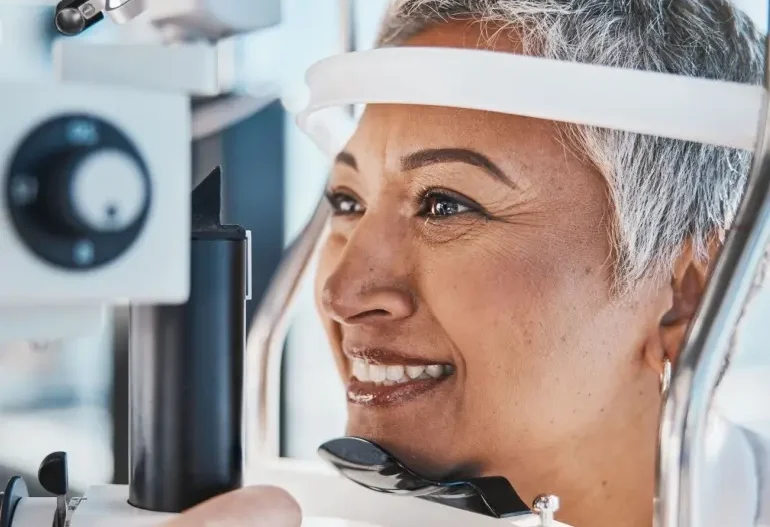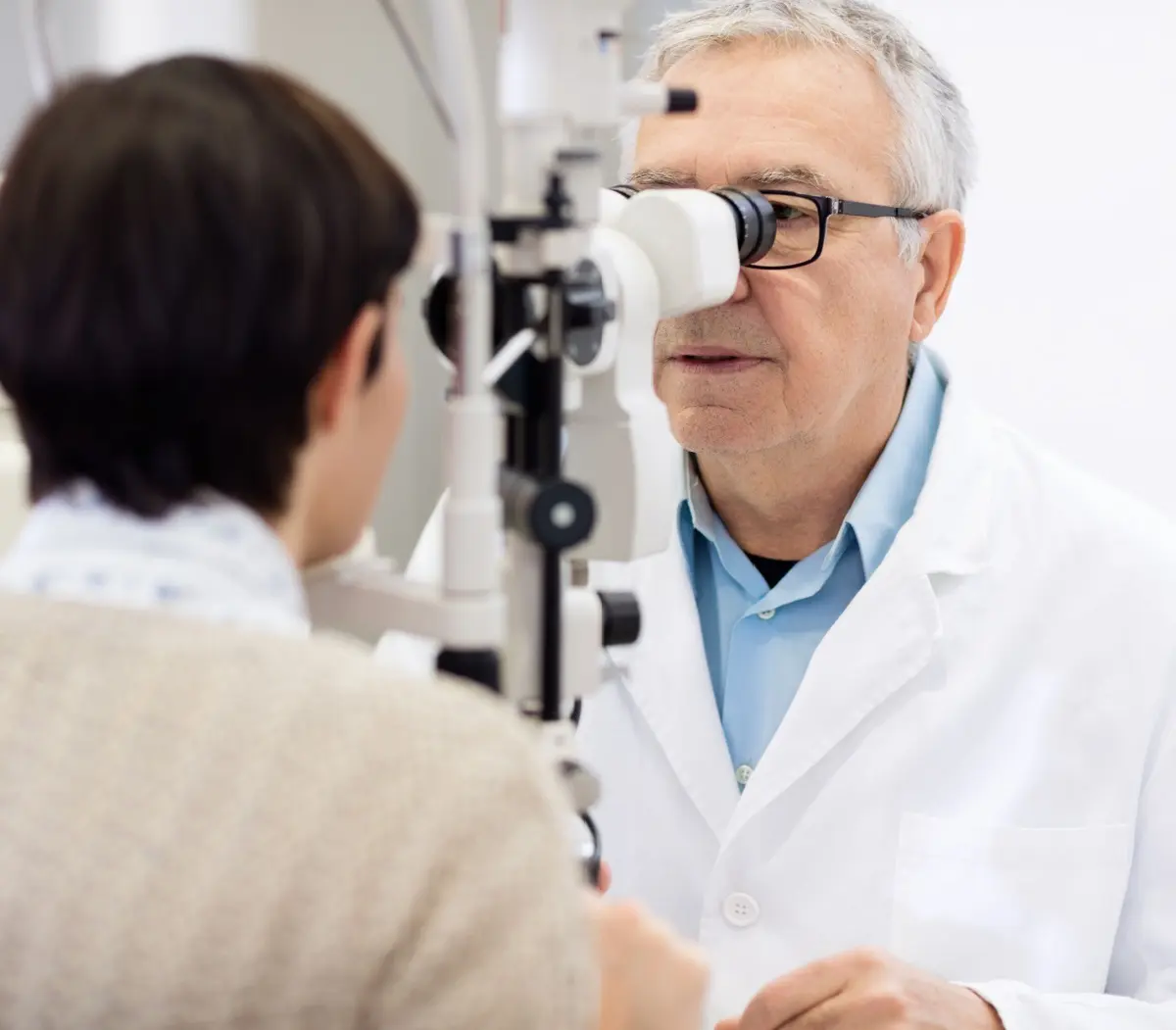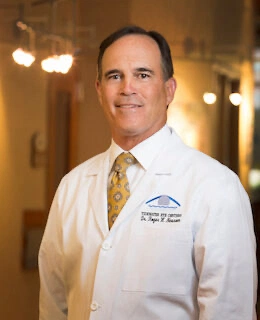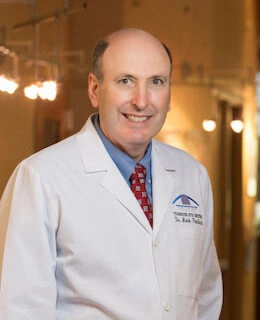
Cataracts
Cataracts are a common eye condition that is often age-related. Cataracts cause blurry or distorted vision, but treatment with cataract surgery can restore clear vision and may even allow patients to achieve better eyesight than they had prior to surgery.
Cataract Diagnosis and Treatment in Virginia Beach, Portsmouth, and Chesapeake, Virginia
The team at Tidewater Eye Centers is dedicated to providing high quality eye care for patients in the Virginia Beach area. Our eye doctors and cataract surgeons are highly skilled and experienced. We offer comprehensive cataract care, including the most advanced diagnostic tools and cataract surgery techniques.

Understanding Cataracts
A cataract is a clouding of the natural lens in the eye, which forms when naturally-occurring proteins build up in the eye. Cataracts prevent light from entering the eye and reaching the retina properly, which leads to vision problems. The development of cataracts is gradual, but they eventually make it difficult to see clearly and can result in vision loss. You can have a cataract in one or both eyes.

Symptoms of Cataracts
Cataracts do not cause pain, but they do interfere with vision. Cataract symptoms include:
- Blurry vision or vision that seems cloudy or hazy
- Difficulty driving at night
- Sensitivity to bright light
- Double vision in one eye
- Diminished color vision, wherein colors appear dull or have a yellow tint
Risk Factors for Cataracts
Cataracts are generally considered to be a natural part of the aging process. According to the National Eye Institute, they will affect about 50% of Americans by age 75. While anyone can develop a cataract, certain risk factors may increase your chances of cataracts:
- Diabetes
- Smoking
- History of eye injuries
- Excessive alcohol use
- Frequent exposure to UV light or sunlight
- Regular use of certain medication such as oral steroids
Cataracts cannot be prevented, but living a healthy lifestyle and protecting your eyes from ultraviolet light may reduce your risk.
Types of Cataracts
Occasionally, a baby may be born with congenital cataracts, but the vast majority of cases are age-related cataracts. Eye doctors classify cataracts by the way they are positioned within the eye:
- A nuclear cataract develops in the center of the lens
- A cortical cataract develops at the edges of the lens
- A subcapsular cataract develops at the back of the lens

How Are Cataracts Diagnosed?
A cataract evaluation at Tidewater Eye Centers involves a thorough eye exam. Your eye doctor will perform several painless tests to check your eye health and determine if you have cataracts.
Your cataract evaluation may include:
- Visual acuity testing to determine your distance and near vision
- Refractive measurement check your glasses prescription
- Assessment of your retinal health
- Review of your medical history
- Discussion of your symptoms and any concerns you have about your vision

Treatment for Cataracts
The only effective treatment for cataracts is surgery to remove them. Rest assured that cataract surgery is among the most commonly performed surgical procedures in the United States; it is considered a very safe surgery with a success rate over 99%. Cataract surgery involves replacing the clouded lens of the eye with a clear artificial lens called an intraocular lens (IOL). If you are diagnosed with cataracts, you may not need surgery right away. Your eye doctor may advise that you wait until symptoms begin to interfere with your daily life.
Intraocular Lens (IOL) Options
Advanced IOL options can do more than just treat cataracts, they can also correct nearsightedness, farsightedness, and astigmatism. Talk to your cataract surgeon about IOL options to reduce or eliminate your need for eyeglasses or contact lenses.
Convenient Locations in Chesapeake, Portsmouth and Virginia Beach VA
We Look Forward to Seeing You!

805 Battlefield Blvd N #111, Chesapeake, VA 23320
Chesapeake VA, 23320

3235 Academy Ave #201, Portsmouth, VA 23703
Portsmouth VA, 23703

1788 Republic Rd #200, Virginia Beach, VA 23454
Virginia Beach VA, 23454
Contact Tidewater Eye Centers
Our eye care professionals and cataract experts are here for you. Contact us with any questions or to schedule an appointment by completing the form below.
The doctors at Tidewater Eye Centers have either authored or reviewed the content on this site.




